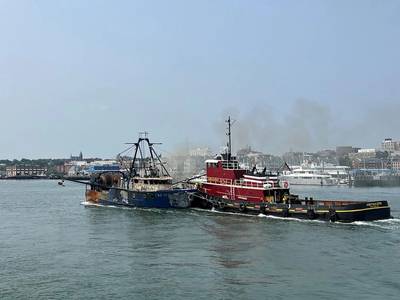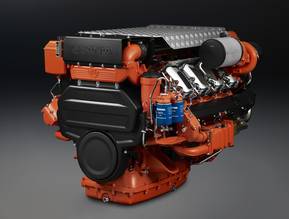Tug Crew Tows Fire-stricken and Abandoned Trawler to Portland, Maine
A tugboat crew was recently called upon to tow in a fire-stricken trawler that had been abandoned in the Gulf of Maine.
The 81-foot fishing vessel Three Girls had been adrift since August 11 when an onboard fire forced its crew to evacuate about 105 nautical miles east of Portsmouth, N.H. The U.S. Coast Guard rescued the six people that had been on board—including a captain, a NOAA observer and four crew members—but the trawler itself was left ablaze and adrift out at sea.
The team at McAllister Towing's Portland Tugboat was called in to tow the burning vessel back to shore.
Capt. Brian Fournier, president of Portland Tugboat, received the call seeking assistance, and his first thought was, “Do I have the equipment and most importantly the crew to engage in this type of rescue?”
Fournier enlisted one of his most experienced crews and prepped them on the assignment. Capt. Jake Forgit, mate Peter Roderiguez, cihief engineer Ian Brushwein and deckhand Aoi Daggett boarded the 110-foot (loa), 4,000-horsepower Nancy McAllister and left Portland, Maine in search of the Three Girls.
Locating the trawler was no easy task. The tug and crew departed at 9 p.m. on August 12 and steamed overnight toward the estimated location of the trawler.
“We were given two possible locations for the vessel based on drift. She wasn’t at the first location, and we kept getting mishits on the radar. We were using binoculars to try and find her. After about an hour we got a consistent target with the radar and set a course to intercept the vessel,” Forgit said.
The Nancy McAllister crew finally met up with the burning trawler at 11 a.m. on August 13—some 14 hours after setting out from Portland.
The next job at hand, to safely hook up a tow line to a burning vessel, was also a challenge. The burning trawler had large outriggers with chains dangling on both sides, so getting close to the vessel proved difficult.
Once in position, Daggett manned the fire hose. “I tried to pump water directly down the stack, so I could target the fire in its engine room”, he said.
Once the fire was tamped down, Rodriguez donned turnout gear and boarded the distressed vessel. “Hooking up the tow was extremely challenging. I was able to jump on the burning vessel, get the tow line secured and quickly return to the Nancy,” he said.
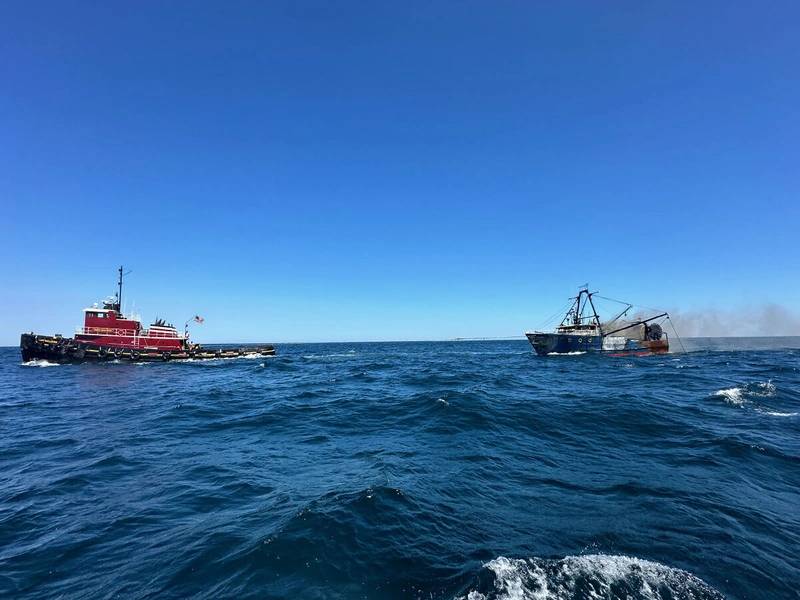 (Photo: Portland Tugboat)
(Photo: Portland Tugboat)
The next 24 hours were equally demanding. During their return to shore, the tug and crew were met by 4-foot waves and had to reengage with suppression efforts as the fire reignited aboard the trawler.
Upon arriving in Portland with the still burning vessel on the morning of August 14, the Nancy hipped up to the trawler and pushed her stern first to the dock. “Hipping up to a vessel is normal procedure for us, but doing so while the vessel is on fire is an experience I won’t forget,” Brushwein said.
The Nancy proceeded to push the Three Girls to the pier and had her all fast at noon on Wednesday. The tug, the 98-foot (loa), 6,000-horsepower Andrew McAllister, was on scene to assist as the Portland Fire Department battled the Three Girls fire for another 3.5 hours.
Fournier was grateful and proud of the crew. “They performed exemplary. Every part of the job was safely handled by these individuals with pure professionalism and determination,” he said. “If the trawler sank in the busy shipping lanes of the North Atlantic, it would’ve been a real hazard to navigation. Due to this crew’s efforts in recovering this vessel, they helped prevent this tragedy.”
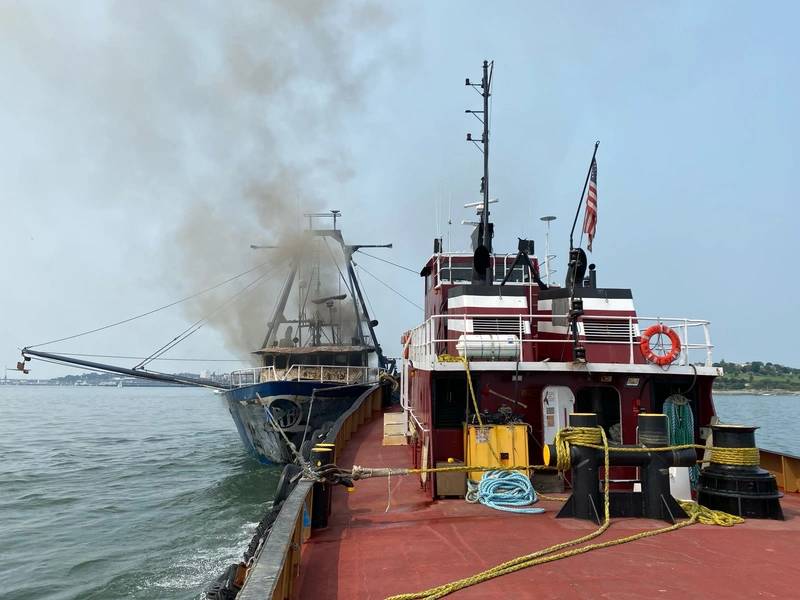 (Photo: Portland Tugboat)
(Photo: Portland Tugboat)
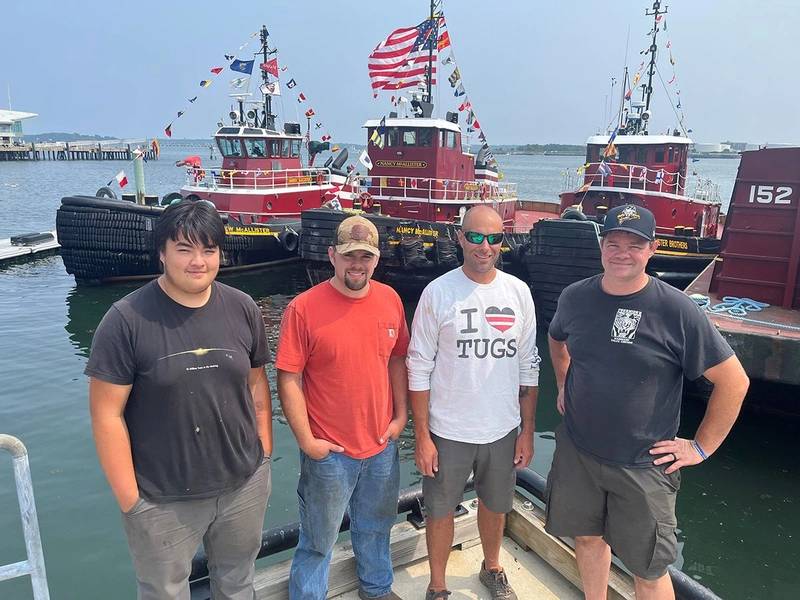 (Photo: Portland Tugboat)
(Photo: Portland Tugboat)



